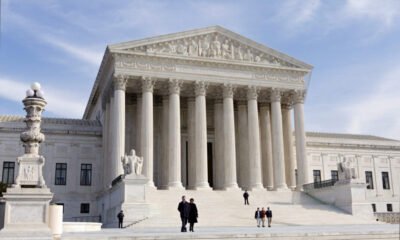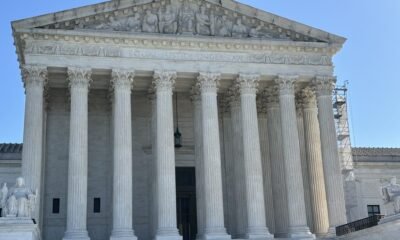Arizona Supreme Court
High Court Declares Open Primaries Legal, Greenlighting Ballot Inclusion

The Arizona Supreme Court announced on Thursday that a ballot proposition aimed at ending partisan primaries will be featured in the upcoming November election. However, this initiative is still under scrutiny due to an ongoing legal challenge that could take several weeks to resolve.
If voters support Proposition 140, it would amend the Arizona Constitution to establish an open primary system. This approach allows candidates for federal, state, and local offices to compete in a single primary election, rather than separate partisan ones, thereby including politically unaffiliated candidates as well.
The initiative, dubbed the Make Arizona Elections Fair Act, enables all registered voters to cast ballots for any candidate in the primary. The top vote-getters would then advance to the general election, regardless of party affiliation.
The Supreme Court dismissed lawsuits from the state’s Democratic and Republican parties that argued the ballot measure violated the constitutional mandate requiring single amendments for constitutional changes. This ruling upheld a previous lower court decision.
The unanimous opinion stated, “The provisions of the Act are topically related, sufficiently interrelated, involve matters that have historically been treated as one subject and are qualitatively similar in their effect on the law.” The court added that touching on multiple sections of the constitution was not necessarily a disqualifying factor.
While this clears the way for Prop. 140 from a constitutional standpoint, the court also remanded a lawsuit challenging the validity of signatures collected for the initiative back to the trial court. Earlier rulings had already established that the initiative gathered more than the minimum required number of signatures.
A total of about 40,000 signatures under examination may be duplicates, a finding that could jeopardize Prop. 140’s place on the November ballot.
“We are grateful to the Arizona Supreme Court for allowing the review of these 40,000 duplicate signatures,” said Arizona Republican Party Chairwoman Gina Swoboda. “This petition does not have enough signatures to qualify for the ballot… We are optimistic the lower court will verify our claims.”
In contrast, Chuck Coughlin, a representative for the Prop. 140 campaign, argued that the Supreme Court merely mandated the trial court to evaluate the evidence concerning duplicate signatures. He asserts that the lower court had determined the exhibit provided by the opposition did not substantiate their claims.
A decision from the trial court is not expected until after the key deadline to print ballots on August 22, which could impact the timeline for mailing out ballots to overseas voters. Coughlin emphasized that there is no evidence presented that would support claims of insufficient signatures, thereby asserting that Prop. 140 should be included in the November ballots.
Maricopa County officials confirmed that the finalized ballots will include Proposition 140. The Arizona Secretary of State’s Office has yet to respond to inquiries regarding these developments.


















